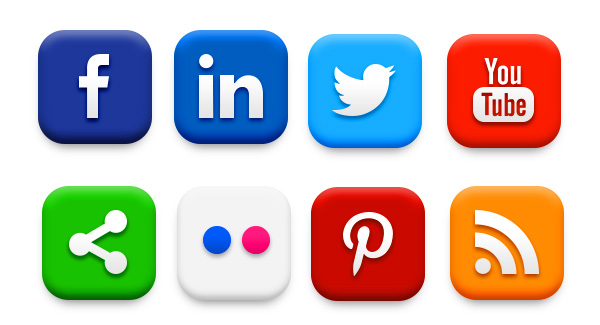Can you really tell a person's psychological state from social media?
By Charlotte Fantelli
There have been some interesting articles around lately regarding the 'gym selfie' and how people that post them are Narcissists, how posting too many relationship posts makes you needy and other 'shock' terms to grab our attention. But is there any truth in these brash remarks, or are they just viral sites looking to ride the wave of interest surrounding social media and amateur psychology?

Looking behind these articles there is actually some scientific research being done and an academic study that may give us some insight into the psychology of social media and those who use it. The news piece published by Brunel University London, entitled 'Facebook status updates reveal low self-esteem and narcissism', provides information of a study conducted by the University, in which 555 Facebook users (all from the US), were intensely surveyed regarding their status updates and the 'Big Five' personality traits: agreeableness, neuroticism, openness, extroversion and conscientiousness – as well as self-esteem and narcissism.
Having read the study in detail there is certainly some interesting findings - albeit somewhat pointing out the obvious, without a huge amount of depth. Here is an overview of the findings:
Narcissism and the 'look at me' updates
We all have those friends who post countless selfies, gym pictures, diet, exercise info and shameless ego brushing updates, that have us somewhat cringing and somewhat envious of their 'perfect' life, in fact it would be wrong of me not to confess to trying to make my status updates as 'picture perfect' as possible. And it is hardly a surprise to see that research has shown these individuals to have narcissistic character traits.
The research shows: Narcissists more frequently post updates on their achievements, diets, exercise and personal appearance, which is motivated by their desire for attention and validation. It also shows that these updates receive a greater number of interactions, ‘likes’ and comments, indicating that the unhealthy 'look at me' attitude is being reinforced positively by attaining the attention they intend. The University's news item also points out that we, as the ones giving the likes, may be doing so out of social politeness, while secretly finding the posts annoying and actually disliking them - although I cannot find this backed up by any of the research, it appears to simply be an assumption.
Dr Tara Marshall, Psychology lecturer from Brunel University, says: “It might come as little surprise that Facebook status updates reflect people’s personality traits. However, it is important to understand why people write about certain topics on Facebook because their updates may be differentially rewarded with ‘likes’ and comments."
While I agree it does come as little surprise, I feel that this news lacks the depth the subject deserves, after all if we are going to label people so easily, perhaps we could at least try to understand a little more? Being a narcissist has a negative connotation, as the 'egotistical and vain, self-centred, attention seeker', Mental Healthy as a site that likes to look deeper, would be wrong to brush off this behaviour as simply narcissistic, but would also like to consider the wider issue with social media - the competition and the feeling of needing to appear interesting, beautiful and to be leading a rose-tinted life; after all these posts may Band-Aid a multitude of scars and parts of life we'd rather hide behind a smiling selfie... Just a thought.
Low self-esteem and the 'relationship' updates
The study shows that people with low self-esteem more frequently posted status updates about their current romantic partner. Again there is a correlation between wanting to appear loved and loveable with feeling a need to be accepted, so this finding makes sense. It is a very common reality that those who have issues relating to self-esteem often put more of their own value and self worth on the success of a relationship.
Although we could also consider that with only 357 participants being involved in a romantic relationship, and all of these living in the US, it doesn't really give a fully accurate depiction of how these findings may relate to everyone.
The study also found:
- Extraverts more frequently update about their social activities, (again no surprise there?)
- Conscientiousness was associated with writing more updates about one’s children (although only 34% of participants were parents) and let's face it, would we not expect parents to be more conscientious than other demographics?
- Openness is positively associated with updating about intellectual topics.

Dr Tara Marshall also added these interesting takes on the study:
'People who receive more likes and comments tend to experience the benefits of social inclusion, whereas those who receive none feel ostracised.
and
'Greater awareness of how one’s status updates might be perceived by friends could help people to avoid topics that annoy more than they entertain.'
MentalHealthy view
While this study has some interesting points, it may be that it does suit the more shallow, viral content that articles I have read seem to enjoy, rather than giving us helpful and in-depth information that can genuinely help people who feel the pressures of the social media age.
While it is interesting and vaguely satisfying to stereotype people who post self-serving updates, are we not really all just wanting to belong as part of a community, online or otherwise? Do we not all simply want to be accepted and valued by our peers? Sadly in this era our lives come under more public scrutiny than ever before and online we may find that we can create an identity that in some way feels good to us; either by patching holes we feel we have in real-life, or by extending that which we feel good about in the 'real' world. Whatever it is, let's not loose the human element of what makes a community, simply by looking at the very shallow picture of someone's social media profile.





